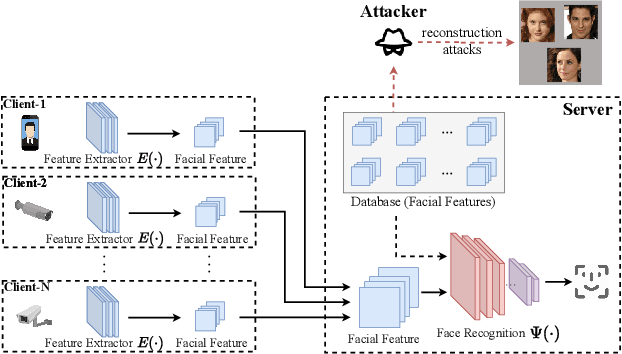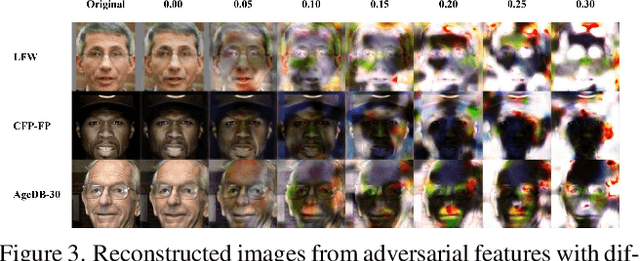Privacy-preserving Adversarial Facial Features
Paper and Code
May 08, 2023



Face recognition service providers protect face privacy by extracting compact and discriminative facial features (representations) from images, and storing the facial features for real-time recognition. However, such features can still be exploited to recover the appearance of the original face by building a reconstruction network. Although several privacy-preserving methods have been proposed, the enhancement of face privacy protection is at the expense of accuracy degradation. In this paper, we propose an adversarial features-based face privacy protection (AdvFace) approach to generate privacy-preserving adversarial features, which can disrupt the mapping from adversarial features to facial images to defend against reconstruction attacks. To this end, we design a shadow model which simulates the attackers' behavior to capture the mapping function from facial features to images and generate adversarial latent noise to disrupt the mapping. The adversarial features rather than the original features are stored in the server's database to prevent leaked features from exposing facial information. Moreover, the AdvFace requires no changes to the face recognition network and can be implemented as a privacy-enhancing plugin in deployed face recognition systems. Extensive experimental results demonstrate that AdvFace outperforms the state-of-the-art face privacy-preserving methods in defending against reconstruction attacks while maintaining face recognition accuracy.
 Add to Chrome
Add to Chrome Add to Firefox
Add to Firefox Add to Edge
Add to Edge